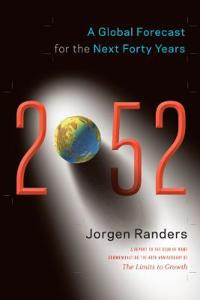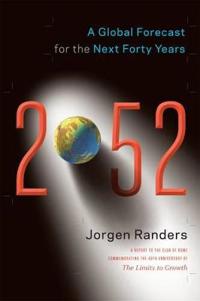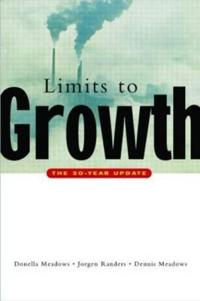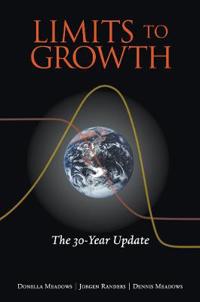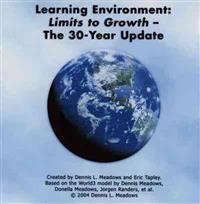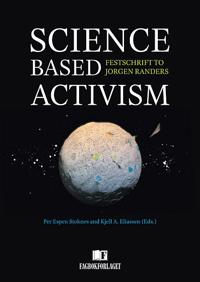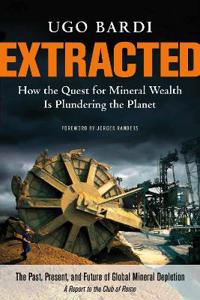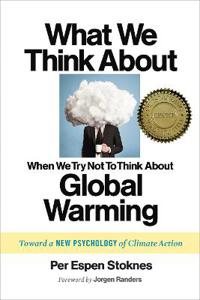2052 (Häftad)
avJorgen Randers
ISBN: 9781603584210 - UTGIVEN: 201207We know what we want the world to be like in forty years. We know what the world could be like in forty years if we all did what needs to be done to create a more sustainable future. But what do we know about what the world will actually be like in forty years? Drawing on global forecasting tools[...]
2052 (Inbunden)
avJorgen Randers
ISBN: 9781603584678 - UTGIVEN: 201206Forty years ago, "The Limits to Growth" study addressed the grand question of how humans would adapt to the physical limitations of planet Earth. It predicted that during the first half of the 21st century the ongoing growth in the human ecological footprint would stop-either through catastrophic "o[...]
The Limits to Growth (Häftad)
avD.H. Meadows, Jorgen Randers, Dennis L. Meadows
ISBN: 9781844071449 - UTGIVEN: 200411'If you only read one book ...make this it' - L. Hunter Lovins, co-author of "Natural Capitalism". 'It is time for the world to re-read Limits to Growth! The message of 1972 is more real and relevant in 2004, and we wasted 30 valuable years of action by misreading the message of the first book' - Ma[...]
Limits to Growth (Häftad)
avDonella H. Meadows, Jorgen Randers
ISBN: 9781931498586 - UTGIVEN: 200406In 1972, three scientists from MIT created a computer model that analyzed global resource consumption and production. Their results shocked the world and created stirring conversation about global 'overshoot, ' or resource use beyond the carrying capacity of the planet. Now, preeminent environmental[...]
Learning Environment, Limits to Growth (CD-ROM) (CD-rom)
avDonella H Meadows, Jorgen Randers, Dennis Meadows
ISBN: 9781931498852 - UTGIVEN: 200412This disc is intended for serious students of Limits to Growth: The 30-Year Update. It permits users to reproduce and examine the details of the ten scenarios published in the book. The CD can be run on most Macintosh and PC operating systems. With it you will be able to: Reproduce the three graphs[...]
Grenzen des Wachstums - Das 30-Jahre-Update (Häftad)
avDonella Meadows, Jorgen Randers, Dennis Meadows
ISBN: 9783777622286 - UTGIVEN: 201112Science Based Activism: Festschrift to Jorgen Randers
ISBN: 9788245018660 - UTGIVEN: 2015-05The pathway from scientific knowledge (based on data, models, and forecasts) to societal implications and policy advice is a perilous one. The shift from "is" to "ought" may be slippery in terms of climate, biodiversity, regulations, and business. Yet, what is to be done if one's research discloses [...]
Extracted (Pocket)
avUgo Bardi, Jorgen (FRW) Randers, Ugo Bardi
ISBN: 9781603585415 - UTGIVEN: 2014-04As we dig, drill, and excavate to unearth the planet's mineral bounty, the resources we exploit from ores, veins, seams, and wells are gradually becoming exhausted. Mineral treasures that took millions, or even billions, of years to form are now being squandered in just centuries-or sometimes just d[...]
What We Think About When We (Try Not to) Think About Global Warming (Pocket)
avPer Espen Stoknes, Jorgen (FRW) Randers, Per Espen Stoknes
ISBN: 9781603585835 - UTGIVEN: 2015-04Why does knowing more mean believing and doing less? A prescription for change The more facts that pile up about global warming, the greater the resistance to them grows, making it harder to enact measures to reduce greenhouse gas emissions and prepare communities for the inevitable change ahead. It[...]

